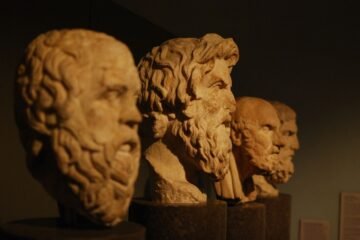In today’s image-driven society, popularity can be a powerful force that shapes perception, often deceiving people into valuing appearances over reality. The duality of human nature and the ability of individuals to present different sides of themselves—depending on the audience—further complicates our understanding of who people truly are.
Understanding the Duality of Human Nature
Human nature is complex, and many people can present themselves in one way to the world while hiding darker truths beneath the surface. This duality can lead to painful contradictions, especially when someone you know to be harmful is admired by society. The person who caused me great harm was seen as a role model—praised by the world for their virtues. Initially, this contradiction left me confused and defeated. How could someone so harmful be celebrated?
Over time, I came to realize that people are often more concerned with the image they project than with living authentically. They change their appearance in an instant, adopting whatever facade will help them thrive in the moment. This is where the duality of human nature is most visible—where the same person can be both a villain in one life and a hero in another.
The Deception of Public Perception
Public perception is powerful, and it is often deceiving. My disillusionment deepened when I watched this individual step onto the stage, receiving an award for their supposed goodness. As they smiled victoriously, basking in applause, I felt a deep sense of injustice. I wanted to shout the truth—that the person the world praised was not the person I knew—but my words were drowned out by the sound of approval.
This moment underscored the reality that the world often operates as a popularity contest, rewarding those who can craft the most favorable narrative, regardless of their true actions. People who manipulate their public image can secure admiration and success, while those who act with integrity may find themselves overlooked. It’s a sobering reminder that popularity and virtue do not always align.
The Mask of Society: Why We Hide Ourselves
Society encourages people to wear masks. It rewards those who maintain a polished exterior, even if their internal values or actions contradict that image. In this superficial world, people are often driven by survival—doing whatever it takes to gain acceptance, approval, or success.
The problem with this societal system is that it discourages authenticity. People learn to hide their flaws, mistakes, and true selves in favor of appearing perfect. However, this constant facade can be exhausting, leading individuals to lose touch with their real identity. In many cases, people get so accustomed to wearing a mask that they forget who they truly are underneath.
The world rewards appearances, not substance. A person’s ability to craft a story, maintain an image, and appeal to the masses can overshadow their actions or character. This leads to a reality where the truly good can end up ostracized, while those who manipulate perceptions are celebrated.
Authenticity vs. Popularity: Which Path to Follow?
In a world dominated by appearances, it can be tempting to follow the path of least resistance—to play the game of popularity and adopt a facade. However, this comes at the cost of one’s true self. While it may seem easier to fit into society’s expectations, authenticity is far more fulfilling in the long run.
Choosing authenticity over popularity requires courage. It means accepting that not everyone will understand or appreciate your true self. It also means being prepared to face judgment or criticism from those who are more comfortable with the masks they wear. However, living authentically allows you to forge deeper, more meaningful connections with others—relationships built on trust and mutual respect rather than surface-level approval.
Conclusion: Navigating a World of Facades
Understanding the duality of human nature and the deception of public perception is crucial in navigating today’s society. The key is to recognize that popularity doesn’t always reflect truth. While the world may often reward those who manipulate their image, we can choose to seek out and value authenticity in ourselves and others.
The challenge is to discern the difference between appearance and reality and not to be swayed by the superficial praise or approval of others. Popularity is fleeting, but integrity and authenticity are lasting. By embracing our true selves and seeing beyond the facades others present, we can build a life rooted in genuine connections and personal fulfillment.
In a world where appearances can be deceiving, the courage to live authentically becomes the most valuable trait of all. Let us remain vigilant, seek out truth in ourselves and others, and avoid falling prey to the superficial allure of popularity.
Takeaways for Living Authentically:
- Trust Your Own Judgment: Don’t let public perception cloud your understanding of someone’s true nature. Be mindful and discerning.
- Embrace Authenticity: Choose to be true to yourself, even when it’s difficult. Authenticity leads to long-term fulfillment.
- Surround Yourself with Genuine People: Build relationships with those who value you for who you truly are, not just for how you appear to the world.
- Resist the Temptation of Popularity: It’s easy to chase approval, but meaningful success comes from staying grounded in your values and character.





